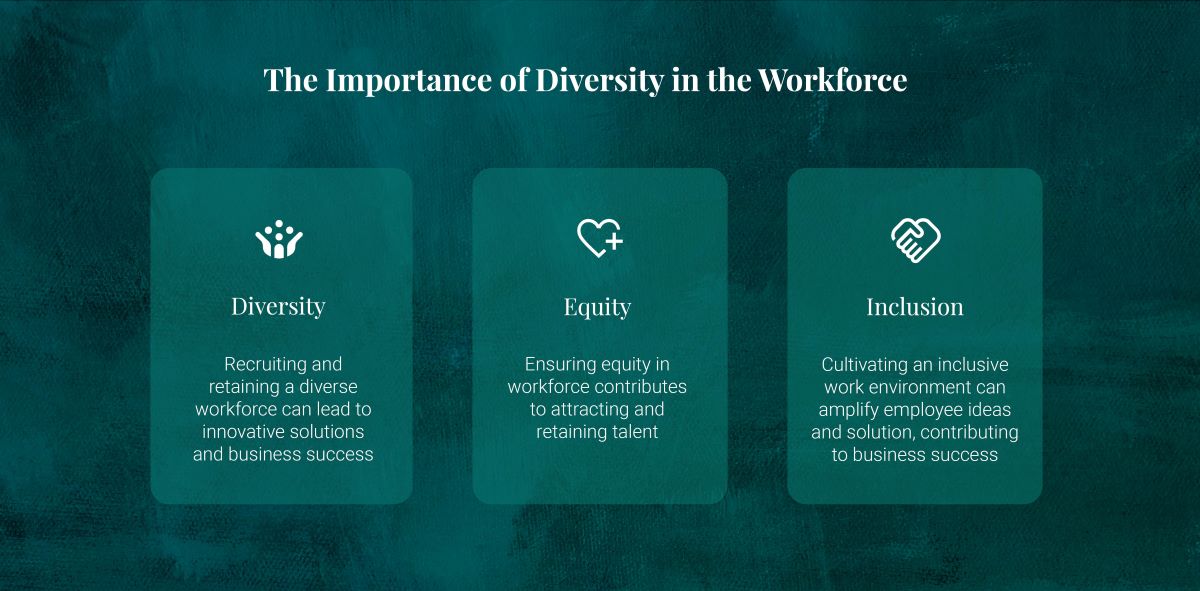
13 May 2024
Navigating Disclosure Risks: Embracing Diversity and Inclusion for Resilience
Summary of the Supreme Court’s Affirmative Action Ruling
On June 29, 2023, the Supreme Court of the United States (SCOTUS) issued two significant rulings that reverberated throughout the nation, effectively ending the use of affirmative action in U.S. college admissions programs.
These landmark decisions stemmed from two key cases: Students for Fair Admissions, Inc. (SFFA) v. President & Fellows of Harvard College (Harvard) and SFFA v. University of North Carolina (UNC).i The cases challenged the admission practices of Harvard and UNC, alleging that the admission process violated Title VI of the Civil Rights Act of 1964 by discriminating against White and Asian American applicants in favor of underrepresented Black and Hispanic applicants.ii Title VI prohibits discrimination based on race, color, or national origin in programs and activities receiving federal financial assistance. In his majority opinion, Chief Justice John Roberts asserted that the affirmative action practices of Harvard and UNC violated the Equal Protection Clause of the Fourteenth Amendment.iii While the majority opinion did not directly scrutinize these programs under Title VI, it established the principle that any discrimination violating the Equal Protection Clause by nature breaches Title VI.iv
Universities are now facing the challenge of navigating a complex legal landscape. Following the 2023 ruling, colleges nationwide started reviewing their admissions policies to ensure compliance with current law.v Revised policies, legacy admissions, and potential affirmative action proxy strategies are poised to undergo close legal scrutiny from both ends of the political spectrum.vi
Implications for the Private Sector
What are the legal implications of the ruling for corporate companies?
While there are no direct legal impacts for the private sector, the recent SCOTUS ruling on affirmative action in higher education has sparked concerns related to its potential implications for the private sector. Uncertainty arises when analyzing the similarities of Title VI with Title VII of the Civil Rights Act of 1964, the latter of which governs private employment practices.vii Title VII is a federal employment law that prohibits employment discrimination based on race, color, religion, sex (including pregnancy), and national origin.
It is important to note that companies are required to disclose board diversity metrics as part of their legal filings. The U.S. Securities and Exchange Commission sanctioned Nasdaq's board diversity rule in 2021, which mandates the disclosure of gender-specific data at the board level, inclusive of a non-binary classification. Additionally, companies must report the count of board members who identify as part of the LGBTQ+ community based on race and ethnicity. While companies may be concerned about the potential implications of the SCOTUS ruling, they must continue to disclose board member diversity metrics.
But What is the Social Reality?
Despite no immediate implications for the private sector, concerns persist. Companies with diversity, equity, and inclusion (DEI) considerations as part of their talent management strategy are particularly concerned about potential future rulings and subsequent legal implications.viii Publicly disclosed DEI-related talent management numerical targets and quotas have drawn particular attention to the new DEI environment. Lawyers say these disclosures can potentially open a company up to legal action. After the SCOTUS ruling, a group of U.S. Republican state attorneys general has cautioned CEOs of some of the United States’ largest 100 companies about the legal risks associated with using race as a factor in hiring and employment practices.ix They argue that the Supreme Court’s rulings on affirmative action could potentially extend to private entities, impacting their diversity initiatives.
In line with these concerns, the American Alliance for Equal Rights has initiated racial discrimination lawsuits against firms such as Fearless Fund, a venture capital firm supporting Black women entrepreneurs, and major law firms like Morrison Foerster and Perkins Coie, which offered diversity fellowships for specific underrepresented groups.x,xi These lawsuits allege that such initiatives discriminate against non-minority applicants.
Litigation pressure and risks aside, universities and businesses alike are grappling with the broader scope of DEI, which extends beyond affirmative action and disclosure. Many advisers and companies still support the notion that diversity programs are valuable and can give a company a competitive edge in the market.
In the aftermath of the court's affirmative action ruling, firms like Littler and Bridge Partners conducted surveys to gauge the landscape. Littler’s survey of over 300 C-suite executives in the U.S. revealed that a striking 91% of surveyed executives maintained their focus on DEI and only 6% scaled back, despite the reported increase in DEI backlash post affirmative action.xii The Bridge Partner’s survey of 400 leaders in the C-suite and human resources departments highlights similar trends. An overwhelming 88% of surveyed employers viewed the DEI program as vital for business, with 73% planning to enhance their DEI initiatives in 2024.xiii To further support the sentiment, a recent survey of chief human resources officers (CHROs) conducted by The Conference Board showed that zero respondents said they planned to scale back on DEI in 2024.
While legal concerns are still at the forefront of corporate risk management, there is broad support for maintaining corporate DEI programs, at least internally. Companies need to navigate the fine line of potential legal implications and business opportunities relating to DEI. As such, companies are shifting focus towards the “I” (inclusion) in DEI. The Conference Board survey found that CHROs are prioritizing employee experience and organizational culture; whereby 70% will focus on improving employee engagement at all levels of the organization.xiv
Is Diversity* Still Important in the Workforce?
In short, yes.

We live in a progressively intricate and intertwined world where diversity in cultures, experiences, education, and demographics is integral to our social and economic framework. Companies that want to establish a presence in the marketplace must navigate, optimize, and manage globalized markets, perse workforces, and previously untapped consumer segments.
Taking a step back and looking at the workforce from a global perspective, the future realities of diversity within the workforce are increasing. Since 2015, the number of women in the C-suite has risen from 17 to 28 percentxv and the percentage of women in the overall workforce has increased globally.xvi A recent U.S. census data projects significant diversity growth in the country until 2060. The Hispanic community is projected to increase by 9.7%, whereas the White population is forecasted to decrease by 8.9%.xvii These demographic shifts will have widespread implications for businesses and their stakeholders.
In short, there is and will be a shift in workforce demographic diversity, impacting the candidate pool for companies. From a hiring and talent management perspective, companies may need to consider the differences and similarities between demographics. Differences can range from requirements of maternal/paternal/family leave options and considerations to workplace culture preferences like remote and hybrid work options.
In addition to the demographic shifts, having a diverse workforce gives companies an edge. As markets become more competitive, businesses need to remain aware and agile in the shifting landscape. To truly gain a competitive edge, companies need to lead or, at minimum, keep pace with peers rather than sit back and respond to market shifts. Studies show that companies with high diversity earn 2.5 times higher cash flow per employee, and companies with strong, inclusive work cultures are 35% more productive than those without robust and inclusive work cultures.xviii
This competitive edge is rooted in a robust organizational culture and a solid structural foundation, both of which are vital for achieving the agility that stems from internal fortitude.xix A cohesive and vibrant organizational culture not only boosts employee morale and engagement but also fosters innovation and collaboration, ultimately contributing to an increased bottom line. Additionally, a robust structural foundation ensures clear roles, efficient processes, and effective decision-making, leading to new market advantages and safeguarding the brand reputation.
In line with the U.S. Census Bureau, this insight defines diversity as embracing the diverse “identities, races, ethnicities, backgrounds, abilities, cultures, and beliefs of the American people,” providing a comprehensive perspective on the subject.
How Can Morrow Sodali Help You?
At Morrow Sodali, we partner with companies that have been integrating aspects of environmental, social, and governance (ESG) into their business decision-making for years. We have worked with organizations on their most important ESG issues, including DEI, talent management, and employee engagement strategies. Amid a rapidly evolving landscape of shifting terminology, regulatory requirements, and stakeholder expectations, we have supported clients to navigate ESG-related strategies and DEI considerations in ways that can have the greatest impact. Assessing the organization’s landscape, including risks, opportunities, and desired future outcomes, is crucial in understanding the priorities as it relates to ESG (including DEI and talent management). And only by integrating ESG considerations into business strategy, operations, and daily decision-making will companies begin to capture the promise of their ESG efforts — building trust, reducing risk, and creating value.
For more information on our services, please contact sustainability@morrowsodali.com.